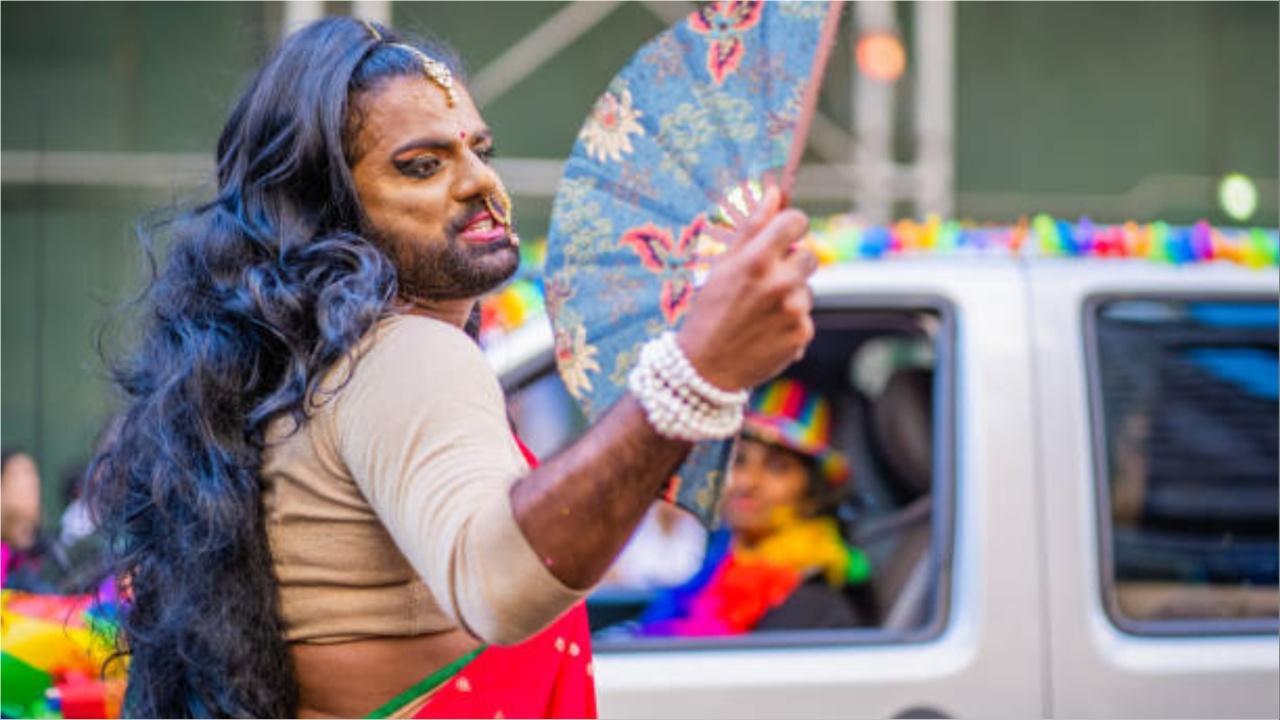In the wake of the Supreme Court’s controversial verdict on same-sex marriage in India, the LGBTQIA+ community and its allies have expressed a mix of disappointment, determination and a resolute call for equality

A five-judge Constitution bench, headed by Chief Justice of India DY Chandrachud, delivered the verdict on 21 pleas seeking legal validation for same-sex marriages. Image Courtesy: iStock
The Supreme Court verdict on same-sex marriage wasn’t the landmark ruling that was hoped for. In a display of solidarity, Mumbai's LGBTQ+ community united to observe the dogma-based rulings, which confirm the "right to union" without providing legal recognition for same-sex marriages.
The apex court has issued a ruling stating that discrimination based on one's sexual orientation, such as being queer, is impermissible. However, the Court also maintains that the legalisation of same-sex marriage is not within its purview due to the absence of an existing legal framework, thereby passing the onus to Parliamentarians.
The SC ruling has not gone down well with the queer community, who are seeking a legal framework to ensure equal rights to inheritance, marriage and adopting children. Nevertheless, the court's recognition of the need to prevent harassment of queer individuals by parents and law enforcement personnel represents an acknowledgment of their basic rights to be treated with dignity.
Queerness is beyond an urban elitist reality
The rulings bring to light the fact that queerness is not an urban elitist phenomenon as the LGBTQIA+ community deals with threats in the remotest corners of the country. The court affirms that queerness transcends urban boundaries, embracing both urban men and rural women tilling the fields. However, the privileged shelter of the urban population shields them from the onslaught that the queer rural population confronts daily.
Queerness encompasses a diverse spectrum of sexual orientations, gender identities and experiences that extend across urban, rural and various socio-economic backgrounds. Acknowledging the presence and struggles of queer individuals in rural areas by the Supreme Court is crucial for fostering inclusivity and establishing the queer identity.
The sole significant triumph for the petitioners has been the unanimous endorsement from the bench, affirming that transgender individuals possess the right to marry within the current legal framework regulating marriages in India. The verdict left out homosexuals from the legal validation of marriage, sparking distress within the queer community.
‘We are exactly where we started from’
In the wake of the Supreme Court’s controversial verdict on same-sex marriage in India, the LGBTQIA+ community and its allies have expressed a mix of disappointment, determination and a resolute call for equality. Hamsafar Trust and petitioners from Samavesh Chamber of Commerce arrived at the Lalit Hotel in Mumbai to comment on the verdict.
Mumbai-based Harish Panchabhai shared his reflections on the verdict. “It didn’t pass through for me and my community. Quite literally, after trying to decipher everything that they were trying to say in their legal English – it was a rosy plaster on our wounds. What I have realised is that – We are exactly where we started from!” Harish mentioned.
He continues, “Yes, few progressive suggestions have been made but nothing concrete to pin our hopes on. I don’t know what you call KLPD in legal language, but that is what it felt like! Nothing has been easy in my life – Everything has been a struggle. If it were to come this easily – I would have died of surprise. I’m absolutely crushed by the verdict but have to live with it.”
‘Impeccable English but hollow verdict by the Supreme Court’
Harish Iyer, an LGBTQIA+ activist told Midday, “One of the things that amazed me completely – was the complete lack of a pathway for recognising LGBTQIA+ couples. I know that we couldn’t get marriage equality under India’s ‘Special Marriage Act’ but there could have been some kind of legal recognition to recognise queer companionship. The panel missed it out, leaving us without hope!”
He continues, “The judgment broke my heart. I loved the impeccable English, the grammar and the syntax of the honourable Chief Justice of India – Mr DY Chandrachud. But in the end, heavy words with no formula for implementation are nothing but a façade. Articulate words and phrases were thrown at us without the intention to change our reality.”
Iyer opines that with the ruling, what the court implied is that ‘we see you, we hear you, we understand the difference between sexuality and gender.’ But what they fail to understand is that just by hearing the queer – they don’t solve anything. In his opinion, the verdict gave no directive or a pathway to solve their existential problems.
When asked about how the verdict could help to get recognition for queer couples, Iyer suggests – If not under the Special Marriage Act, the court could have guaranteed our rights under another umbrella – they could create a path to a legal framework on the lines of legal instruments like power of attorney. They could have done something to enable us to cohabit, to start a family and give us our due right to equality.”
‘Treated like second-class citizens in our own country’
This was a great opportunity for the government and the judges to bring a positive change in our society. Instead, we got a verdict packaged in a conceited language, said Ankit Duggal who is an LGBTQIA activist from Goa. Through active engagement and advocacy, Duggal has worked relentlessly to raise awareness and challenge discriminatory norms.
“We are not going to go back. We are going to fight till we have equal rights to inheritance, marriage and companionship. No queer individual should be treated as second-class citizens in our own country. I can ascertain that society and people at large are getting more aware of our lives. It is not too far when we will have more and more allies to support us in our struggle for equality.”
Duggal continues, “We have bid goodbye to the closets of shame. We are out there with our faces and names. We are not going to rest – if you think we will get into a closet. That is not going to happen.” His commitment extends beyond mere rhetoric; he actively encourages the LGBTQIA+ community to assert its presence, rights and dreams, ultimately working toward a more inclusive and accepting society.
‘Question who you vote for’
Bringing back attention to India’s leaders, Suji, an LGBTQIA+ ally from Mumbai urged people to rethink who they vote for. She tells Midday, “Please speak to your elected representatives, municipal ward in-charges, MPs and MLAs. Tell them that you exist in their jurisdiction and let them know that you are queer. Let them know that you are living a fulfilling life but need their support in achieving your full personhood.”
The verdict has sparked discussions on inclusivity and the need for a shift in societal attitudes. “Even in the 21st century, we are devoid of inclusivity. For some of us, the dream of living a fulfilling life only remains a dream. We contribute to India's burgeoning population, and excluding our rights is denying us existence,” added Suji.
The absence of LGBTQ+ individuals on the bench and the lack of acceptance, opportunities, and recognition serves as a reminder that groundwork remains to be done. An important question emerges: Which leaders are the citizens of India voting for? Are these leaders accepting of the queer community and attuned to their dreams?
While the Supreme Court's decision may not have fully met the expectations of the LGBTQIA+ community, it has ignited a collective determination to continue the fight for equal rights, recognition and inclusion in the Indian society. As these voices grow stronger, it’s a sign that the struggle for equality and acceptance is far from over, and that change is on the horizon.
What does the verdict mean for the queer community?
The latest Supreme Court verdict, which denies the legalisation of same-sex marriages but recognises the ‘right to union,’ has complex ramifications for the queer community in India. On one hand, the acknowledgment of the ‘right to union’ represents a degree of legal recognition for same-sex couples, acknowledging their relationships and potentially granting them certain legal rights and protections.
This recognition can be seen as a step forward in addressing the longstanding marginalisation of the LGBTQ+ community. However, the denial of full legal recognition for same-sex marriages can be disappointing to many queers who have been advocating for marriage equality. This means that same-sex couples don’t have the same rights and benefits that heterosexual couples enjoy under the law, particularly concerning inheritance rights and legal marital status.
The prohibition on same-sex couples adopting children is another significant limitation imposed by the verdict. It restricts their ability to create families and provide loving and stable homes for children in need. This limitation can be seen as a setback in the ongoing struggle for equal rights.
Despite these challenges, the recognition of the ‘right to union’ does acknowledge the existence of same-sex couples and offers minimal legal protection. It can be viewed as a foundation upon which future advocacy efforts can build to secure more comprehensive rights for the Indian queer community. Additionally, it underscores the need for continued advocacy and legal reform efforts by the LGBTQ+ community and their allies to push for full marriage equality and equal rights.
ADVERTISEMENT
 Subscribe today by clicking the link and stay updated with the latest news!" Click here!
Subscribe today by clicking the link and stay updated with the latest news!" Click here!








